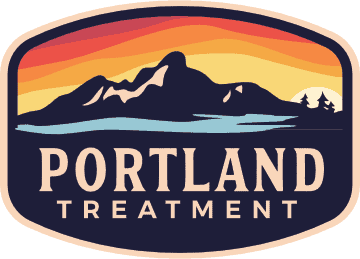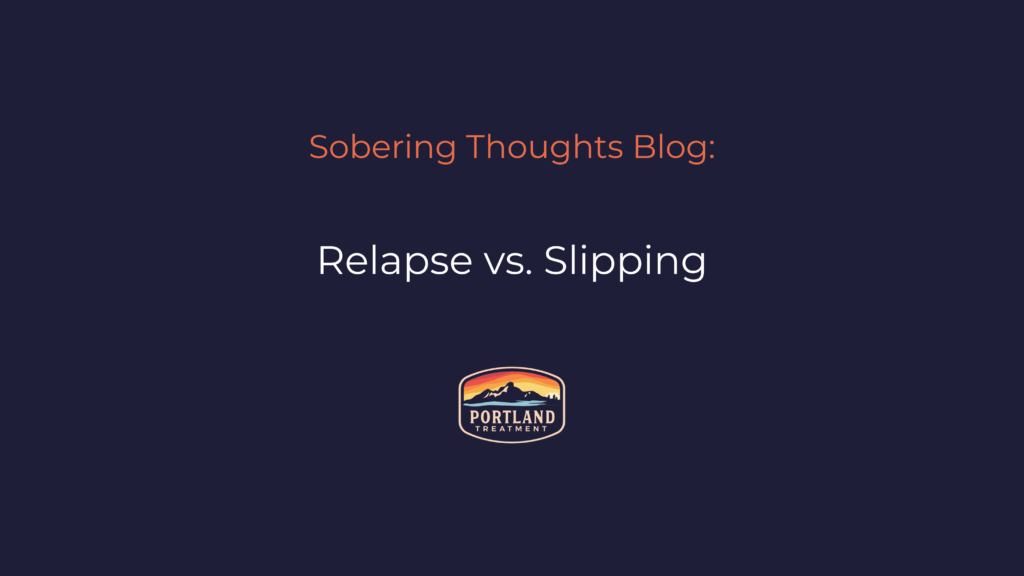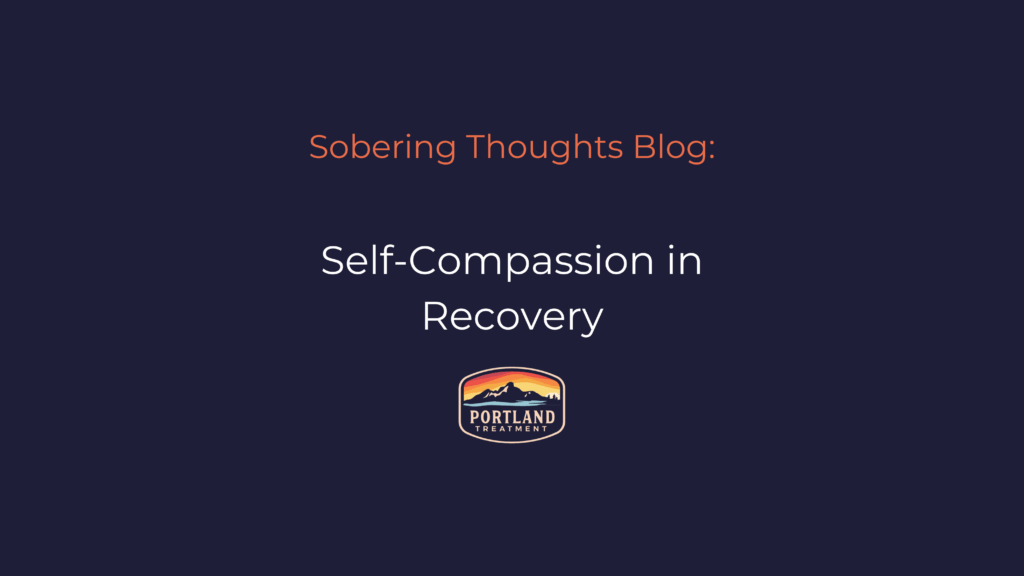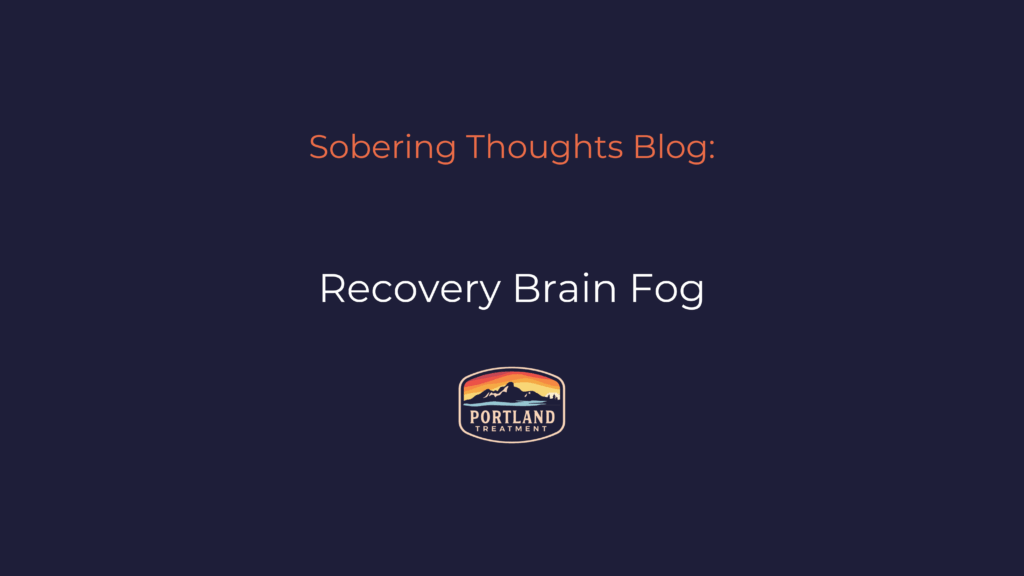Maine is home to some of the most reputable residential rehab programs, and Portland Treatment stands out as a leading expert-led facility. In this comprehensive guide, we will delve into the world of residential rehab programs, understanding what they are, the various benefits they offer, and the types of therapies available. We will explore the …
Maine is home to some of the most reputable residential rehab programs, and Portland Treatment stands out as a leading expert-led facility. In this comprehensive guide, we will delve into the world of residential rehab programs, understanding what they are, the various benefits they offer, and the types of therapies available. We will explore the crucial factors to consider when choosing the right residential rehab program, including treatment approaches, location, and the qualifications of staff and experts.
Portland Treatment takes a personalized and holistic approach to care, offering specialized treatment plans and integrating evidence-based practices to ensure the best possible outcomes for individuals seeking help. We will also highlight the importance of personalized care and support, emphasizing the significance of individualized treatment plans and the involvement of family in the recovery process.
Tracking success and progress is essential in residential rehab, and we will discuss how success rates are measured and how treatment plans are adjusted based on progress. We will explore aftercare programs and strategies for relapse prevention, both of which are crucial aspects of long-term recovery.
Whether you are considering residential rehab for yourself or a loved one, this article will provide valuable insights into the world of expert-led residential rehab programs at Portland Treatment, offering a comprehensive understanding of the available resources and support for those seeking to embark on the journey to recovery.
Understanding Residential Rehab Programs
Residential rehab programs provide comprehensive and holistic treatment for individuals struggling with addiction in a residential setting, offering intensive outpatient programs and individual therapy.
They offer a safe and structured environment where individuals can focus solely on their recovery without distractions from the outside world. These programs often include a range of therapies, such as cognitive-behavioral therapy, dialectical behavior therapy, and experiential therapy, tailored to address the specific needs of each person.
The holistic approach of residential rehab programs encompasses not only addiction treatment but also the enhancement of overall well-being, including nutritional counseling, physical fitness activities, and mindfulness practices. This combination fosters a more sustainable and long-term recovery journey.
What Are Residential Rehab Programs?
Residential rehab programs are structured treatment programs designed to provide comprehensive care and support for individuals battling addiction, offering a holistic approach to recovery within a residential environment.
The core objective of these programs is to create a therapeutic environment that supports individuals in achieving lasting recovery from substance abuse. By immersing residents in a supportive community, utilizing evidence-based therapies, and integrating medical care with psychological and behavioral treatments, residential rehab programs address the physical, mental, and emotional aspects of addiction. This approach fosters a deeper understanding of the underlying causes of addictive behavior and provides individuals with the tools to manage triggers and cravings, ultimately leading to sustained sobriety.
Benefits of Residential Rehab Programs
Residential rehab programs offer individualized care, therapy, and support services, fostering a comprehensive approach to recovery within a nurturing and structured environment.
Patients in residential rehab programs benefit from personalized treatment plans designed to address their unique needs, ensuring that they receive the therapy services most beneficial to their individual situations. The supportive environment and 24/7 care provided in these programs enable individuals to focus on their recovery without distractions, promoting a sense of security and stability.
The comprehensive support system in residential rehab encompasses various aspects such as family involvement, aftercare planning, and holistic wellness activities, contributing to a well-rounded and effective recovery process.
Types of Therapies Offered
Residential rehab programs incorporate a variety of evidence-based therapies, including individual therapy, holistic care, and mental health support, catering to the diverse needs of individuals in recovery.
Individual therapy within residential rehab programs offers personalized counseling and support, focusing on addressing underlying emotional issues and behavioral patterns. Holistic care embraces a comprehensive approach, integrating physical, mental, and emotional well-being through activities such as yoga, meditation, and nutritional guidance. Alongside, mental health support encompasses psychiatric evaluation and medication management to address co-occurring disorders, ensuring a holistic approach to recovery.
Choosing the Right Residential Rehab Program
Selecting the most suitable residential rehab program involves evaluating treatment approaches, considering the location and setting, and assessing the qualifications of the staff and experts involved in the treatment process.
When evaluating treatment approaches, it’s essential to consider if the facility offers intensive outpatient programs, individual therapy, and medical detox as part of the treatment plan. The inclusion of these services can significantly impact the effectiveness of a program. Location also plays a crucial role, as it can affect the individual’s comfort and access to support systems. Verifying the qualifications and experience of the staff, such as therapists, doctors, and support personnel, is vital for ensuring the highest quality care.
Evaluating Treatment Approaches
When evaluating treatment approaches, it is vital to assess the program’s approach to intensive outpatient care, individual therapy, and specialized treatment plans for opioid addiction and medical detoxification.
Intensive outpatient care within a residential rehab program allows patients to receive structured support while maintaining their daily routines. It offers flexibility, enabling individuals to attend therapy sessions and receive medical care without disrupting work or family commitments.
Individual therapy, tailored to meet the specific needs of each patient, provides a private and secure environment for discussing personal struggles and challenges related to addiction. Specialized treatment plans, such as dual diagnosis programs, can address co-occurring mental health disorders alongside addiction, ensuring comprehensive care.
Consideration of Location and Setting
The location and setting of a residential rehab program play a crucial role in providing an environment conducive to recovery, particularly in the context of rehab facilities located in Portland, Maine.
Portland, Maine, with its serene coastal beauty and a supportive community, offers an ideal backdrop for individuals seeking rehabilitation. The peaceful and picturesque surroundings can have a calming effect on the mind, promoting a sense of tranquility and well-being.
The presence of reputable rehab facilities in Portland, Maine ensures access to comprehensive treatment programs delivered in a nurturing and therapeutic environment. This combination of natural beauty and professional support makes this location a compelling choice for those pursuing a residential rehab program.
Qualifications of Staff and Experts
Assessing the qualifications of the staff and experts at a residential rehab program is essential, ensuring that individuals receive compassionate care and comprehensive treatment from skilled professionals at facilities such as Pine Tree Recovery Center.
This evaluation plays a crucial role in determining the quality of care and support provided to individuals battling addiction. When the staff members are well-qualified and experienced, they can deliver tailored, evidence-based therapies to address the diverse needs of the patients. Their expertise enables them to identify underlying issues and provide holistic treatment approaches, promoting long-term recovery. Trusting the expertise of professionals within the rehab facility can instill confidence and hope in individuals seeking to overcome addiction.
Expert-Led Approach at Portland Treatment
Portland Treatment takes an expert-led approach, providing individualized and holistic care alongside mental health support while offering various financing options, including private insurance, MaineCare, Maine Medicare, sliding scale payment, TRICARE Maine, and IHS-funded drug rehabs.
The team of professionals at Portland Treatment comprises experienced clinicians, therapists, and counselors who work collaboratively to develop personalized treatment plans for each individual. They prioritize integrated care, addressing both physical and mental health needs through evidence-based therapies and counseling sessions tailored to meet the unique requirements of each patient.
The center’s diverse financing options make quality treatment accessible to a wide range of individuals, ensuring that financial concerns do not hinder someone’s ability to seek the help they need. The sliding scale payment option, in particular, reflects their commitment to accommodating varying financial circumstances while upholding the standard of care.
Overview of Portland Treatment
Portland Treatment offers a comprehensive range of addiction treatment programs, including intensive outpatient programs, individual therapy, and a holistic approach to recovery, guided by a team of skilled professionals and experts.
The intensive outpatient programs offered by Portland Treatment are designed to support individuals in maintaining their daily responsibilities while receiving the necessary care and therapy. These programs provide flexible scheduling and a range of therapeutic services, including cognitive-behavioral therapy, group counseling, and medication-assisted treatment for opioid addiction.
Individual therapy plays a crucial role in addressing the specific needs of each client, allowing for personalized treatment plans that focus on emotional and psychological healing. Portland Treatment’s holistic approach encompasses both traditional and alternative therapies, such as yoga, mindfulness practices, and nutritional support to promote overall well-being and long-term recovery.
Specialized Care and Treatment Plans
At Portland Treatment, individuals receive specialized care and personalized treatment plans tailored to their unique needs, ensuring a comprehensive and individualized approach to recovery from opioid addiction and substance abuse.
With a focus on holistic well-being, Portland Treatment’s intensive outpatient programs offer a range of therapeutic modalities, including individual counseling, group therapy, and family support, providing a comprehensive foundation for effective recovery.
The multidisciplinary team at Portland Treatment evaluates each individual’s physical, psychological, and social needs to create a customized treatment plan that addresses root causes while simultaneously fostering sustainable long-term sobriety.
Their approach encompasses not only detoxification and medication management, but also holistic interventions such as yoga, meditation, and nutritional guidance, recognizing that individualized care extends beyond the cessation of substance use.
Integration of Evidence-Based Practices
Portland Treatment integrates evidence-based practices into their comprehensive treatment approach, ensuring that individuals receive effective and research-backed care for substance addiction and mental health support within their outpatient program.
This holistic approach looks at each person as a whole, addressing their physical, emotional, and spiritual well-being. The professional team at Portland Treatment utilizes therapy, counseling, medication management, and support groups to provide a well-rounded treatment plan.
The comprehensive care includes ongoing assessments and personalized care plans, ensuring that each individual’s specific needs are met for successful recovery.
Personalized Care and Support
Personalized care and support form the cornerstone of effective residential rehab programs, emphasizing individualized treatment plans, holistic care, and the involvement of family support services.
In the context of therapy and recovery, individualized treatment plans address the unique needs and challenges of each individual, ensuring that their specific circumstances are taken into account throughout their rehabilitation journey. This tailored approach not only fosters a sense of give the power toment and autonomy but also increases the likelihood of successful outcomes.
The incorporation of holistic care within residential rehab programs goes beyond addressing physical symptoms, encompassing the mental, emotional, and spiritual well-being of the individual. This comprehensive approach aims to promote overall wellness and long-lasting recovery, recognizing the interconnectedness of various aspects of one’s health.
The involvement of family support services can play a crucial role in the rehabilitation process, fostering a supportive environment and strengthening the individual’s social support network. By engaging family members in the treatment and recovery journey, residential rehab programs can enhance the likelihood of sustained progress and provide a valuable source of encouragement and understanding.
Individualized Treatment Plans
Individualized treatment plans are meticulously designed to address the specific needs and challenges of each individual, ensuring a personalized and effective approach to recovery within residential rehab programs.
This tailored approach acknowledges that different individuals may have varying underlying causes of addiction, co-occurring mental health disorders, and unique personal circumstances influencing their substance use. By customizing treatment plans, therapists and medical professionals can provide specialized care that considers these complexities, ultimately increasing the likelihood of successful recovery.
Such personalized attention fosters a sense of give the power toment and autonomy in individuals, as they are actively involved in shaping their treatment journeys, leading to higher levels of engagement and commitment.
Importance of Holistic Care
Holistic care plays a pivotal role in addressing the physical, emotional, and mental well-being of individuals in residential rehab programs, integrating comprehensive support and therapeutic interventions.
By taking into account the multifaceted needs of the individuals undergoing rehab, holistic care ensures a well-rounded approach to their recovery. This approach encompasses various aspects such as nutrition, exercise, counseling, and alternative therapies, which collectively contribute to their overall well-being.
Comprehensive support involves addressing not only the addiction but also the underlying mental health issues, fostering a more sustainable and long-term recovery journey.
Family Involvement and Support Services
Family involvement and support services play a vital role in the recovery journey, fostering a supportive and nurturing environment for individuals undergoing residential rehab programs in Portland, Maine.
By actively involving family members in the rehabilitation process, these programs create a sense of community and understanding that aids in the individual’s healing. Plus emotional support, family involvement allows for holistic care by addressing familial dynamics and triggers that may contribute to substance abuse.
Support services encompass various specialized therapies, counseling, and education for both the individual and their loved ones, paving the way for long-term recovery.
Success Rates and Progress Tracking
Assessing success rates and tracking progress are integral components of residential rehab programs, enabling individuals to measure their recovery milestones and make adjustments to their treatment plans as needed.
Success rates within residential rehab programs provide insights into the effectiveness of various treatment approaches. They offer individuals and their treatment teams a tangible measure of progress, helping set realistic expectations and goals. Tracking progress allows for the identification of any potential obstacles or areas that require additional support.
By regularly monitoring progress, rehab programs can tailor their approaches to each individual’s specific needs, creating a more personalized and effective treatment experience. This adaptive approach enhances the recovery journey by addressing any challenges or setbacks, ultimately leading to improved overall success rates.
Measuring Success in Residential Rehab
Measuring success in residential rehab involves evaluating individual progress, treatment outcomes, and the attainment of recovery goals, providing a comprehensive assessment of the effectiveness of the rehab programs.
Individual progress is often tracked through various assessments, including physical health improvements, mental well-being, and the development of coping mechanisms. Treatment outcomes are measured by monitoring addiction severity, relapse rates, and improvements in overall functioning. The attainment of recovery goals is assessed by the individual’s ability to maintain long-term sobriety, establish a support network, and improve their quality of life.
Success is determined by the integration of evidence-based practices, personalized treatment plans, and the utilization of holistic approaches that address the diverse needs of individuals. Evaluating the effectiveness of the rehab programs involves analyzing statistical data, conducting follow-up assessments, and obtaining feedback from participants and their families.
Tracking Progress and Adjusting Treatment Plans
Tracking progress and making adjustments to treatment plans are essential aspects of facilitating successful recovery within residential rehab programs, ensuring that individuals receive tailored care and support based on their evolving needs.
Through regular progress tracking, rehab programs can identify the effectiveness of interventions and determine if any adjustments are necessary to optimize the individual’s recovery journey. This personalized approach recognizes that each person’s path to wellness is unique, requiring flexibility in treatment plans to address changing circumstances and evolving goals.
By monitoring progress, clinicians can also address any emerging obstacles or hurdles, ensuring that individuals have the necessary resources and support to navigate their challenges with resilience.
Aftercare and Relapse Prevention
Aftercare and relapse prevention strategies are crucial components of a comprehensive treatment plan, offering ongoing support and interventions to prevent relapse and sustain long-term recovery.
After completing initial treatment, individuals transitioning to the post-treatment phase face various challenges, making aftercare vital for continued progress. Aftercare may include regular counseling sessions, support group participation, and access to community resources, which play a pivotal role in providing individuals with the coping skills and strategies necessary to navigate triggers and prevent relapse.
Relapse prevention techniques focus on identifying potential triggers, developing effective coping mechanisms, and fostering a strong support network. By integrating these strategies into the aftercare plan, individuals are equipped with the tools and resources to navigate the complexities of daily life while reinforcing the principles of recovery.
Importance of Aftercare Programs
Aftercare programs offer essential support and guidance to individuals post-rehab, equipping them with the tools and resources necessary to maintain sobriety and prevent relapse, ensuring sustained recovery and well-being.
These programs play a crucial role in addressing the various challenges that individuals may face after completing their initial treatment. They provide a structured environment for continued counseling, support groups, and access to community resources, which are instrumental in helping individuals navigate daily life without succumbing to triggers and temptations.
Aftercare programs often focus on holistic wellness, encompassing physical, mental, and emotional aspects of recovery. This comprehensive approach helps individuals build resilience and develop coping mechanisms, give the power toing them to handle stress and cravings effectively.
Strategies for Relapse Prevention
Implementing effective strategies for relapse prevention involves the development of coping skills, lifestyle adjustments, and ongoing support systems to mitigate the risk of relapse and sustain long-term recovery following residential rehab programs.
One essential coping skill is learning to recognize triggers that may lead to relapse, such as stress, negative emotions, or certain situations. By identifying these triggers, individuals can develop individualized relapse prevention plans to effectively manage and overcome these challenges.
Lifestyle adjustments, such as regular exercise, healthy eating habits, and engaging in fulfilling activities, can significantly reduce the likelihood of relapse. It is also crucial to establish a strong support network, including family, friends, and community groups, to provide ongoing encouragement and accountability throughout the recovery journey.
Comprehensive and Compassionate Addiction Treatment at Portland Treatment in Maine
At Portland Treatment in Maine, we are deeply committed to providing comprehensive and compassionate care for those struggling with addiction. Our approach is holistic, focusing on the individual as a whole, rather than just the symptoms of addiction. We understand that each journey to recovery is unique, and our expert team is dedicated to creating personalized treatment plans that cater to the specific needs and circumstances of each client.
Our facility offers a wide range of services designed to support individuals at every stage of their recovery journey. From initial detoxification to inpatient rehab, outpatient programs, and ongoing aftercare support, we ensure a continuum of care that fosters lasting recovery. Our treatment modalities include evidence-based therapies, innovative treatment techniques, and holistic approaches that encompass mental, physical, and emotional health.
Recognizing the importance of a supportive environment in the recovery process, Portland Treatment provides a nurturing and safe space where individuals can heal and grow. Our programs are designed to empower clients, helping them develop the skills and resilience needed to overcome addiction and rebuild their lives. Family involvement is also a key component of our approach, as we believe in healing and strengthening family relationships as part of the recovery journey.
At Portland Treatment, we pride ourselves on our team of highly qualified professionals who bring a wealth of experience and expertise to our programs. Our staff includes licensed therapists, medical professionals, and addiction specialists who are passionate about helping individuals achieve sobriety and wellness. We are constantly evolving our practices to incorporate the latest research and best practices in addiction treatment, ensuring the highest standard of care for our clients.
Choosing Portland Treatment in Maine means choosing a path to recovery that is supported by expertise, compassion, and a commitment to excellence. We are not just a treatment center; we are a community dedicated to helping individuals and their families overcome the challenges of addiction and move forward to a brighter, healthier future.






